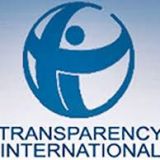Integrity Pact Signatory PSUs
If you are facing issues of ethics and integrity at these PSUs, kindly bring them to our attention.
Below is more information about the Integrity Pact:
Introduction
It is in public procurement that most of the "grand corruption" occurs with much of the damage visibly inflicted upon the development process in poorer countries and countries in transition. "Islands of integrity" is a process in which voluntary agreements are made, involving bidders and the government, to restrict opportunities for corruption in a particular project. Keeping this is mind, the Integrity Pact (IP) was designed and launched by Transparency International in the 1990s to safeguard public procurement from corruption. It can be used by any procurement body in its procurement and contracting.
Purpose
The goal of the Integrity Pact is to reduce any (and almost ensure no) chances of corrupt practices during procurement through a binding agreement between the agency and bidders for specific contracts. It is intended to accomplish two primary objectives:
To enable companies to abstain from bribing by providing assurances to them that (i) their competitors will also refrain from bribing, and (ii) the government procurement, privatisation or licensing agencies will undertake to prevent corruption, including extortion, by their officials and to follow transparent procedures.
To enable governments to reduce the high cost and the distortionary impact of corruption on public procurement, privatisation or licensing. Thus, the Integrity Pact is a specific tool used to build transparency in public procurement, bidding or licensing process by both public institutions and private agencies. The establishment of such a fair and transparent basis for awarding contracts not only ensures efficiency but also helps in building public trust in the government and the private sector.
Pre-requisite for the principal interested in entering into MoU for signing Integrity Pact (IP) with Transparency International India (TII)
Clear understanding of IP implementation process.
Share the Code of conduct policy with TII.
Commitment to implement IP should be reflected in the words & deed of the Principal.
Principal should take steps to inform /communicate internal staff about various aspects of IP.
A Nodal officer to deal with TII on issues related to IP be appointed by the PSU.
In case of changes /modifications in the draft MoU & IP program, TII should be consulted and final draft MoU and IP Program should be shared with TII.
All IEMs should be approved by CVC before entering into MoU with TII.
Principal, Vendors, IEMs should be present at the time of signing IP.
The MoU has to be signed by the Chair of the organization.
The Key Elements
A pact (contract) among a government office inviting public tenders for a supply, construction, consultancy or other services, or for the sale of assets, or for a license or concession (the Authority, i.e., the "principal") and those companies submitting a tender for this specific activity (the "bidders");
An undertaking by the principal that its officials will not demand or accept any bribes, gifts, etc., with appropriate disciplinary or criminal sanctions in case of violation;
A statement by each bidder that it has not paid, and will not pay, any bribes;
An undertaking by each bidder to disclose all payments made in connection with the contract in question to anybody (including agents and other middlemen as well as family members, etc., of officials); the disclosure would be made either at the time of tender submission or upon demand of the principal, especially when suspicion of a violation by that bidder emerges;
The explicit acceptance by each bidder that the no-bribery commitment and the disclosure obligation as well as the attendant sanctions remain in force for the winning bidder until the contract has been fully executed;
Undertakings on behalf of a bidding company will be made "in the name of and on behalf of the company's Chief Executive Officer";
A pre-announced set of sanctions for any violation by a bidder of its commitments or undertakings, including (some or all):
Denial or loss of contract;
Forfeiture of the bid security and performance bond;
Liability for damages to the principal and the competing bidders, and
Debarment of the violator by the principal for an appropriate period of time.
Bidders are also advised to have a company Code of Conduct (clearly rejecting the use of bribes and other unethical behaviour) and a Compliance Program for the implementation of the Code of Conduct throughout the company.
Bidders are also advised to have a company Code of Conduct (clearly rejecting the use of bribes and other unethical behaviour) and a Compliance Program for the implementation of the Code of Conduct throughout the company.
Penalties for failure to implement IP
Officials are subject to penal action and bidders have to face cancellation of contract, forfeiture of bond, liquidated damages and blacklisting. Action will, however, not require criminal conviction but be based on "no-contest" after the evidence is made available or there can be no material doubts. Disputes in Integrity Pact implementation are resolved by arbitration. Independent External Monitoring is a key aspect of Integrity Pact implementation. Public access to all relevant information is a necessity. It calls for a forum in which representatives of civil society can discuss the contract itself. This concept of IEMs includes the existence of private sector inspector, which will be delegated with the rights of civil society to monitor the contract Suggested bodies are government office with non-involvement, TI India or a credible NGO. The monitoring and supervising procedures are specified and a certificate of corruption-free is issued at the conclusion of the contract more
















